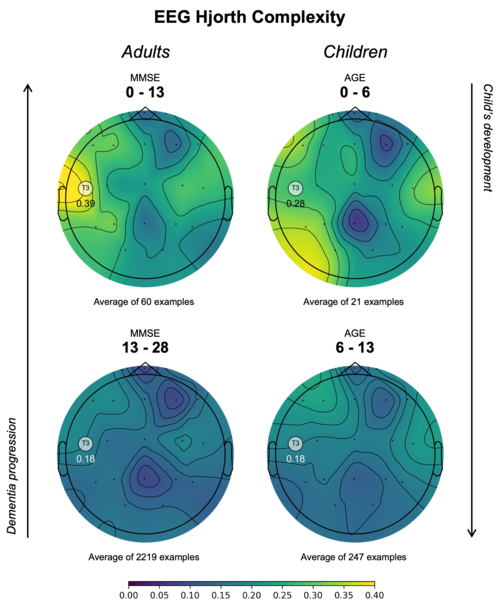Our latest research paper, titled “Electroencephalogram features support the retrogenesis hypothesis of Alzheimer’s disease: Exploratory comparison of brain changes in aging and childhood”, has been accepted for publication in the prestigious Journal of Alzheimer’s Disease.
About the Study
The retrogenesis hypothesis (RH) proposes that the cognitive and functional decline seen in Alzheimer’s disease mirrors, in reverse, the sequence of brain development during childhood and adolescence. Our study is the first to directly compare electroencephalogram (EEG) patterns between older adults at various stages of cognitive decline and children at different stages of brain maturation.
Key Findings
- Using a regression model trained on EEG data from 510 older adults, we identified EEG markers predictive of global cognitive status.
- The same model, when applied to EEG data from 696 children, showed that predictions correlated strongly with age (r=0.73).
- Key EEG features-such as theta coherence, temporal Hjorth complexity, and beta edge frequency-were found to be concordant predictors of cognitive function in both populations.
- Importantly, these EEG features were inversely associated between older adults and children, providing functional evidence in support of the retrogenesis model.
Implications
Our findings suggest that specific EEG biomarkers may be useful for the continuous monitoring of cognitive function and could help improve clinical assessment and intervention strategies in Alzheimer’s disease. We are excited about the potential for further clinical validation and the future application of these biomarkers with our clinical partners.

